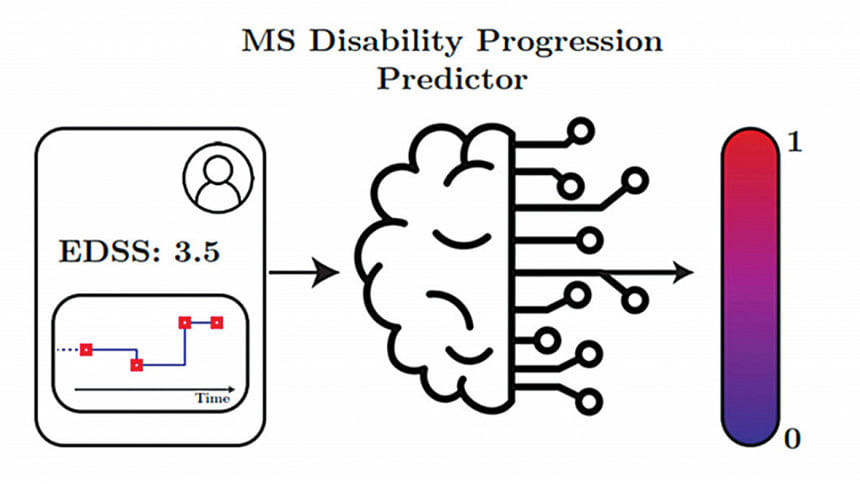Machine learning models predict disability progression in multiple sclerosis

A recent study has demonstrated that machine learning models can effectively predict how multiple sclerosis (MS) will progress in patients, offering new hope for improved disease management. The research, led by Edward De Brouwer from KU Leuven in Belgium, was published this week in PLOS Digital Health.
Multiple sclerosis is a chronic and progressive disease where the immune system attacks the protective sheath around nerves, leading to worsening disability over time. With the global prevalence of MS rising by more than 30% over the past decade, predicting its progression has become increasingly important. Accurate forecasts can help patients plan their lives better and allow doctors to tailor treatments more effectively.
The study analysed data from 15,240 adults with at least three years of MS history. These patients were treated at 146 MS centres across 40 countries, providing a comprehensive dataset. Researchers used this data to train sophisticated machine learning models to predict the likelihood of disease progression over the next few months and years.
The results were promising. The models showed an average predictive accuracy score of 0.71 out of 1. This score, known as the area under the receiver operating characteristic curve (ROC-AUC), reflects how well the models can predict future disability progression. Higher scores indicate better performance. Importantly, the study found that a patient's past disability progression was a stronger predictor of future progression than their treatment or relapse history.
Edward De Brouwer highlighted the significance of the study, stating, "Using the clinical history of more than 15,000 people with multiple sclerosis, we trained a machine learning model capable of reliably predicting the probability of disability progression in the next two years. The model only uses routinely collected clinical variables, which makes it widely applicable."
These findings suggest that machine learning models could greatly enhance how MS is managed. By providing accurate predictions, these models can help doctors make better treatment decisions and assist patients in planning for their future. Since the models use standard clinical data, they could be easily integrated into everyday clinical practice.
The researchers believe their models have significant potential to improve the quality of life for MS patients. They recommend further studies to test the models' effectiveness in real-world settings. The advancements in machine learning represent a major step forward in understanding and managing complex diseases like multiple sclerosis.
This study highlights how technology can provide valuable insights and support better healthcare decisions, offering new hope for patients dealing with chronic and progressive conditions.

 For all latest news, follow The Daily Star's Google News channel.
For all latest news, follow The Daily Star's Google News channel. 



Comments